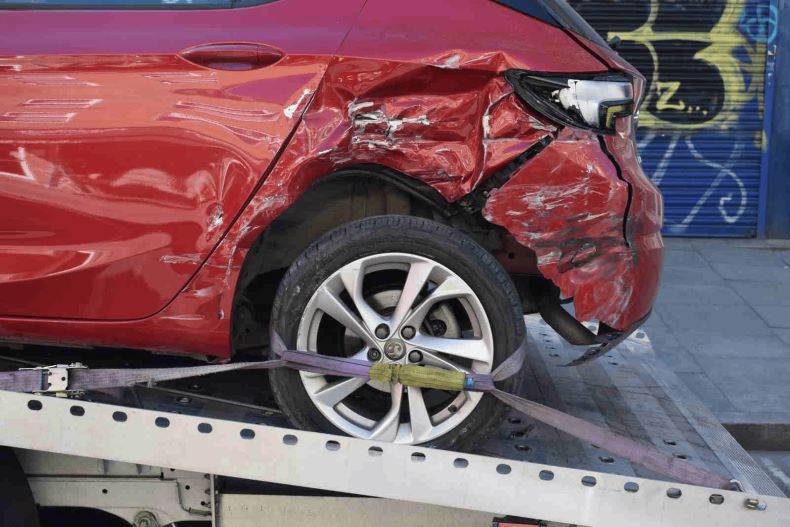
Car accidents are sudden, chaotic, and often result in significant stress and suffering for those involved. When a car accident turns fatal, it’s a heartbreaking and life-altering event for the victim’s family. Besides the emotional pain, it also raises numerous legal questions. What happens after a fatal car accident in Nevada? In this article, we will provide a comprehensive guide to help you understand the legal process and your options when facing such a tragic situation.
What Are the Foremost Steps Needed to Take After a Fatal Car Crash?
First and foremost, it’s essential to grasp the basics of what transpires after a fatal car accident. In Nevada, as in most states, certain legal steps come into play:
Notification:
When a fatal accident occurs, the first step is notifying the authorities and medical personnel. This is crucial for documenting the accident and ensuring that the deceased person receives the necessary medical attention.
Police Report:
Law enforcement officers will respond to the scene, conduct an investigation, and file an accident report. This report is a critical document that will play a significant role in determining liability.
Medical Attention:
If the deceased person is not declared dead at the scene, they will be transported to a medical facility. Medical professionals will attempt to save their life, and this information will be documented in their medical records.
Identification and Notifying Family:
If the victim does not survive the accident, their identity must be confirmed. This typically involves identification through official documents or, in some cases, a post-mortem examination.
Once the victim is identified, the next-of-kin or family members are notified. This notification is often carried out by law enforcement or medical personnel, and it is a deeply emotional and challenging moment for the family.
Autopsy (if necessary):
In some cases, an autopsy may be conducted to determine the cause of death. This is especially important when foul play or unusual circumstances are suspected.
Funeral Costs:
The family of the deceased will need to make arrangements for the funeral and burial. These expenses can quickly become overwhelming.
Legal Representation:
It’s advisable to consult with an experienced car accident attorney. They can provide guidance on the legal aspects and help you make informed decisions.
How is Liability Determined For a Fatal Car Accident?
Determining liability for a fatal car accident is a crucial aspect of the legal process that follows such tragic events. Liability, in this context, refers to establishing who is legally responsible for the accident and, consequently, for the victim’s death. The process of determining liability typically involves several key factors and considerations:
Police Report and Investigation:
The initial step in determining liability is the police report. When a fatal car accident occurs, law enforcement officers respond to the scene and conduct a thorough investigation. They document evidence, interview witnesses, and assess the condition of the vehicles involved.
The police report contains important information, such as statements from the parties involved, eyewitness accounts, diagrams of the accident scene, photographs, and any citations issued. It serves as a crucial document for assessing fault.
Traffic Laws and Regulations:
Traffic laws and regulations provide a framework for determining fault. These laws dictate rules of the road, including speed limits, right-of-way, and safe driving practices.
Violations of traffic laws can be strong indicators of liability. If one party involved in the accident was in violation of traffic laws (e.g., speeding, running a red light, or driving under the influence), they may be considered at fault.
Negligence and Recklessness:
Liability often hinges on the concept of negligence. Negligence refers to the failure to exercise reasonable care, resulting in harm to others. In the context of a fatal car accident, negligence can include actions like distracted driving, failure to yield, or following too closely.
Recklessness, which involves a deliberate disregard for the safety of others, can also be a determining factor. Examples of recklessness may include street racing, aggressive driving, or driving under the influence of drugs or alcohol.
Eyewitness Testimony:
Eyewitness accounts can provide valuable insight into the circumstances of the accident. Their statements and observations can help corroborate or dispute the information in the police report.
Independent eyewitnesses who have no personal interest in the outcome of the case are often considered more credible.
Expert Witnesses:
In some cases, expert witnesses may be called upon to analyze the accident and provide their professional opinions. Accident reconstruction experts, for example, can use physical evidence to recreate the accident and determine how it occurred.
Medical experts may also be consulted to establish the cause of death and the link between the accident and the victim’s fatal injuries.
Evidence from the Scene:
Physical evidence at the accident scene can be critical in determining liability. Skid marks, vehicle damage, debris, and the final resting positions of the vehicles can all provide clues about how the accident occurred.
Video footage from surveillance cameras or dashcams may also be useful in establishing liability.
Criminal Charges:
In cases involving fatal car accidents, the responsible party may face criminal charges, such as vehicular manslaughter. Criminal proceedings can lead to a determination of guilt and liability for the accident.
Civil Wrongful Death Claims:
In addition to any criminal proceedings, the family of the deceased may file a civil wrongful death claim against the at-fault party or their insurance company. This legal action seeks compensation for the victim’s medical bills, funeral costs, lost wages, and other related expenses.
The outcome of a civil wrongful death claim can also help establish liability, as it requires a determination of fault.
The Legal Process
When a fatal car accident occurs, the legal process can be complex and overwhelming. Here’s a general overview of what to expect:
Consulting an Attorney:
If you haven’t already, it’s crucial to consult with an experienced car accident attorney who specializes in wrongful death cases. They will help you understand your legal rights and options.
Investigation:
Your attorney will conduct a thorough investigation into the accident, including reviewing the police report, gathering evidence, and speaking with witnesses.
Filing a Wrongful Death Claim:
Your attorney will help you file a wrongful death claim against the at-fault driver or their insurance company. This claim seeks financial compensation for the deceased person’s medical bills, funeral costs, lost wages, and other related expenses.
Legal Proceedings:
The legal process can involve negotiations with the insurance company, settlement discussions, or even going to court if a fair settlement cannot be reached.
Criminal Proceedings:
If the accident involved criminal charges, your attorney will work in conjunction with the district attorney’s office to ensure that the responsible party faces appropriate legal consequences.
Financial Compensation:
If the wrongful death claim is successful, you may receive financial compensation to help cover the expenses associated with the accident.
How Car Accident Attorneys Can Help in Wrongful Death Lawsuit
When someone dies after a fatal car accident, hiring a car accident attorney can be immensely beneficial to file a wrongful death suit. These attorneys have expertise in handling complex legal matters related to fatal accidents and can provide valuable assistance in several ways:
Legal Expertise: Car accident attorneys are well-versed in the laws and regulations surrounding car accidents and wrongful death claims. They understand the legal processes, procedures, and statutes specific to these cases, ensuring that all legal requirements are met.
Case Evaluation: Attorneys can assess the strength of the wrongful death case. They consider factors such as liability, negligence, evidence, and the potential damages that can be claimed. This evaluation helps the family understand the merit of their case.
Investigation: Car accident lawyers initiate and oversee a thorough investigation into the accident, gathering evidence, interviewing witnesses, and reviewing all relevant documents, including the police report, medical records, and autopsy reports. This process is critical for building a compelling case.
Determination of Liability: Attorneys work to establish liability, identifying the party or parties responsible for the accident and the victim’s death. They assess factors such as negligence, reckless driving, traffic law violations, and more to determine who is legally at fault.
Filing Legal Documents: Car accident attorneys handle the paperwork associated with filing a wrongful death claim. They ensure that all necessary legal documents are properly prepared and filed within the required deadlines.
Negotiation with Insurance Companies: Attorneys negotiate with the insurance companies involved, including the at-fault driver’s insurance and the victim’s insurance provider. They work to secure a fair settlement that adequately compensates the family for their losses.
Litigation: In cases where a fair settlement cannot be reached through negotiation, car accident lawyers are prepared to file a lawsuit and represent the family in court. They build a compelling case, present evidence, and advocate for the family’s interests during legal proceedings.
Assessment of Damages: Attorneys help the family assess the full extent of their financial and non-financial losses. This includes calculating economic damages (medical expenses, funeral costs, lost wages) and non-economic damages (pain and suffering).
Emotional Support: Car accident lawyers provide emotional support and understanding to the grieving family. They offer empathy and a compassionate approach to helping the family through the legal processes during an extremely challenging time.
Settlement Advice: Attorneys advise the family on whether to accept a settlement offer or pursue litigation. They evaluate the adequacy of settlement offers and provide guidance on the potential risks and benefits of pursuing a lawsuit.
Case Management: Car accident lawyers manage all aspects of the legal case, including communication with all parties involved, court appearances, negotiations, and any necessary legal proceedings.
Advocacy for Justice: Above all, car accident lawyers serve as advocates for justice. They work to ensure that the responsible party is held accountable for their actions and that the surviving family members receive the compensation they need to move forward.

Consult an Experienced Car Accident Attorney at BLG
Losing a loved one in a fatal car accident is a devastating experience, but seeking justice and closure through the legal system can provide some solace. It’s important to remember that every case is unique, and the outcome may vary depending on the circumstances and evidence available. In conclusion, what happens after a fatal car accident in Nevada is a complex and emotionally challenging process. It involves legal considerations, financial burdens, and the pursuit of justice.
Understanding your rights and having the support of a knowledgeable attorney can help you navigate this difficult journey and seek the closure and compensation you need to move forward. If you are facing this situation, don’t hesitate to reach out to a legal professional for guidance and assistance during this trying time.
For guidance and support during the legal process after a fatal car accident in Nevada, consult an experienced car accident attorney at BLG today. Our dedicated team is here to help you navigate the challenging road ahead.
Contact us for a free consultation and take the first step toward seeking justice and compensation for your loved one’s loss.





